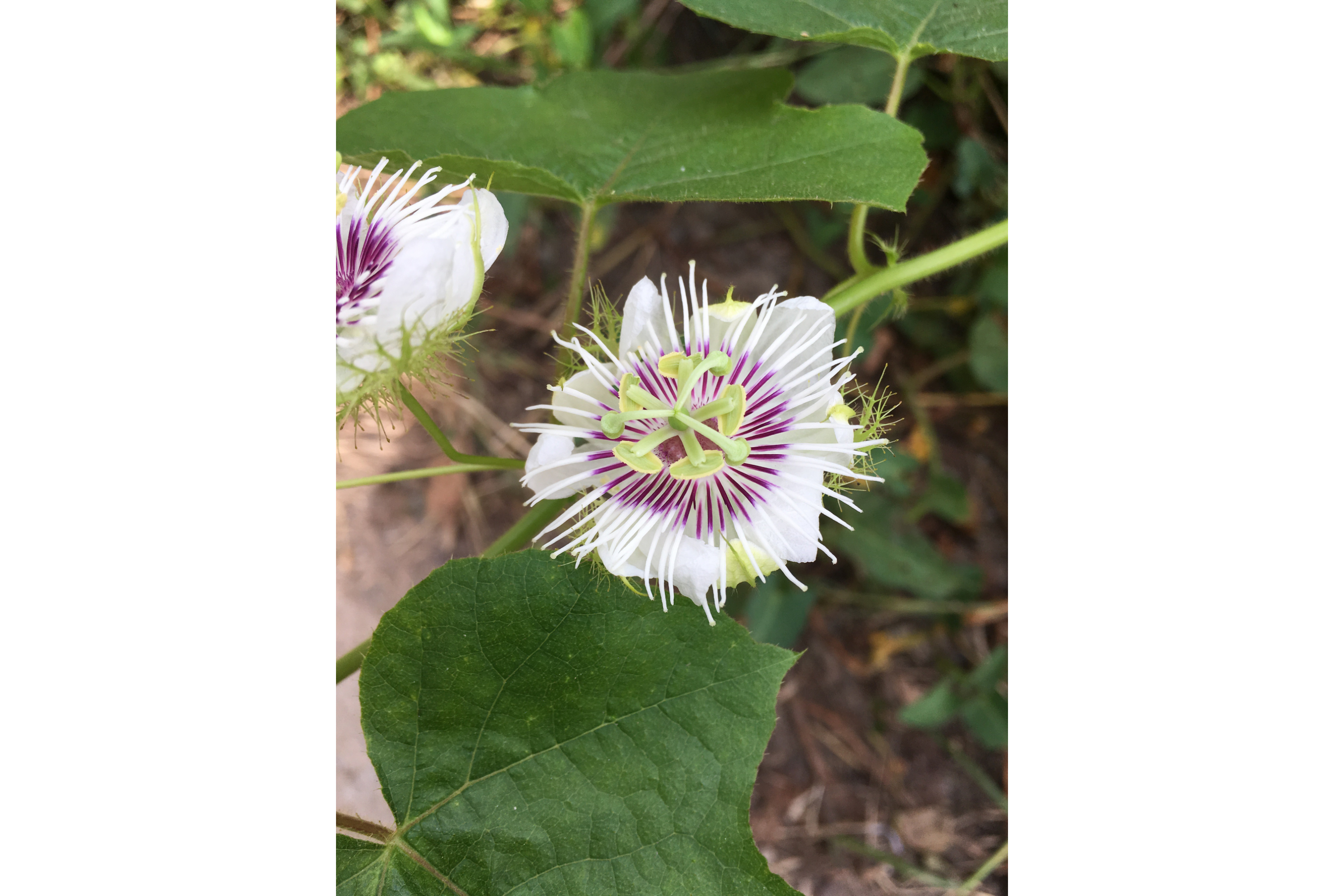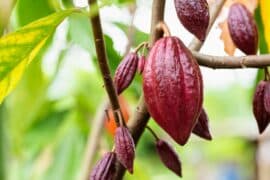Stinking passionflower
(Passiflora foetida)

Description
Passiflora foetida (common names: stinking passionflower, wild maracuja, bush passion fruit, wild water lemon, stoneflower, love-in-a-mist, or running pop) is a species of passion flower that is native to the southwestern United States (southern Texas and Arizona), Mexico, the Caribbean, Central America, and much of South America. It has been introduced to tropical regions around the world, such as Southeast Asia, South Asia, Hawaii, Africa, and The Maldives. It is a creeping vine like other members of the genus, and yields an edible fruit. The specific epithet, foetida, means "stinking" in Latin and refers to the strong aroma emitted by damaged foliage. The stems are thin and wiry, and are covered with minute sticky yellow hairs. Older stems become woody. The leaves are three- to five-lobed and viscid-hairy. When crushed, these leaves give off a pungent odor that some people consider unpleasant. The flowers are white to pale cream coloured, about 5–6 cm diameter. The fruit is globose, 2–3 cm diameter, yellowish-orange to red when ripe, and has numerous black seeds embedded in the pulp; the fruit are eaten and the seeds dispersed by birds. Passiflora foetida is able to trap insects on its bracts, which exude a sticky substance that also contains digestive enzymes. This minimizes predation on young flowers and fruits. Whether or not it gains nourishment from its prey is uncertain, and it is considered a protocarnivorous plant.
Taxonomic tree:







